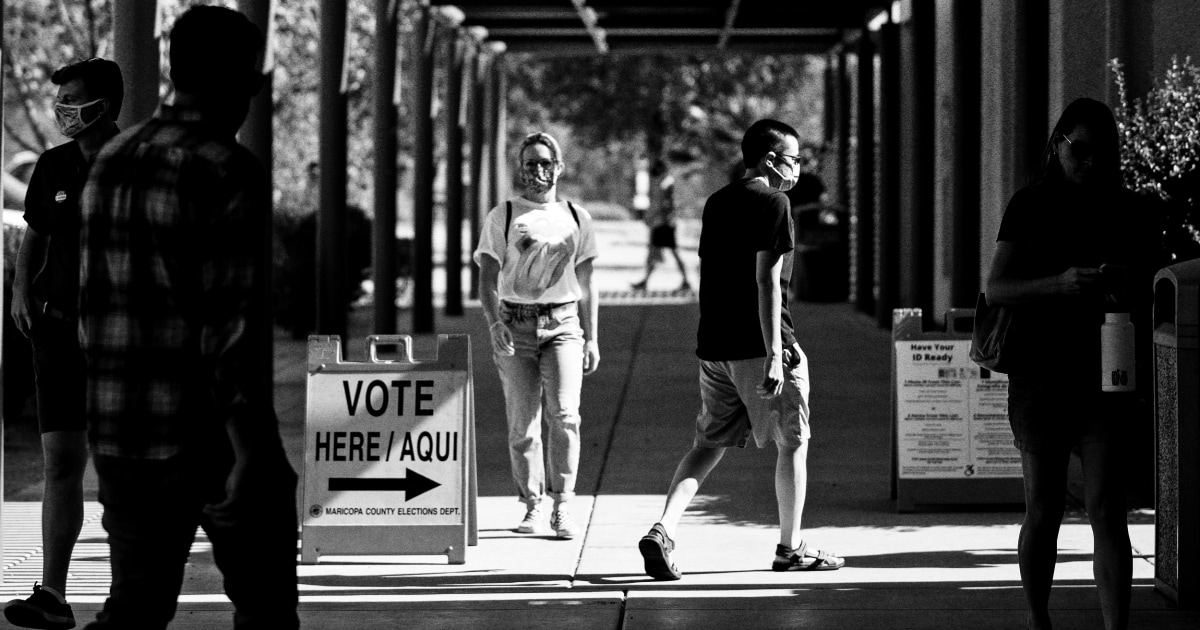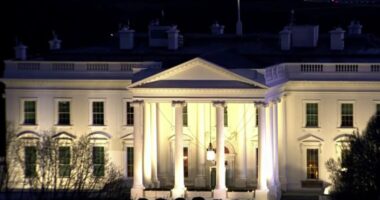
WASHINGTON — When the Supreme Court upheld two election laws in Arizona on Thursday, voting rights advocates quickly became concerned it would make it harder to challenge new restrictions across the country as discriminatory under the Voting Rights Act.
That provision, known as Section 2, was at issue in the 6-3 ruling along ideological lines, as the six conservatives outlined new “guideposts” for its applicability. These “guideposts” now loom over a flood of expected voting-related cases, including in battleground states such as Georgia, ahead of the 2022 election.
The court’s opinion raised alarms among advocates for protecting ballot access, putting fresh pressure on the Democratic-controlled Congress to pass new federal laws that prevent states from imposing rules seen as targeting liberal-leaning voters.
Marc Elias, a top Democratic election lawyer, said progressives “need to fight harder with every tool available to protect voters from suppressive laws.”
“It is important to remember that most voter suppression laws are challenged under First, 14th and 15th amendments to the Constitution. Today’s decision does not affect any constitutional claims,” he said. “While the court today wrongly limited the protection offered under Section 2, it did not do away with them. The various legal challenges under Section 2 will continue.”
Justice Elena Kagan, dissenting for the three liberal justices, wrote that the majority’s decision “undermines Section 2” by rewriting the 1965 law to limit its scope “from multiple directions.”
Alex Keyssar, a Harvard University professor and author of “The Right to Vote: The Contested History of Democracy in the United States,” whom Kagan cites three times in her dissent, said the majority opinion cast voting rules like Arizona’s ballot-collection restriction as “abstractions” while ignoring critical context, like the fact that Native American voters in the state often lack home mail service.
Election law expert Rick Hasen said the court’s new standards focus less on the discriminatory impact of a particular law and more on granting deference to states to impose laws if they assert a significant interest, such as voter fraud, without needing to prove its case.
In his majority opinion, Justice Samuel Alito wrote that preventing fraud — even when it hasn’t occurred in that state — is a “strong and entirely legitimate state interest,” infuriating advocates who said it would be used to provide cover for state legislators keen on restricting ballot access.
Former President Donald Trump’s stolen election lie has inspired Republican-led state legislatures to advance changes to elections that proponents argue are necessary to prevent voter fraud, despite the fact that there is no evidence of widespread fraud in U.S. elections.
Sophia Lin Lakin, deputy director of the American Civil Liberties Union’s Voting Rights Project, criticized what she said was “the canonization of fraud prevention as a legitimate interest even in the absence of any evidence, despite the overwhelming evidence in the opposite direction.”
The ruling is “blind to the reality” that voters of color face in America, she added. “It refuses to take a look at that and include those day-to-day experiences that people actually face in accessing the ballot.”
Lakin said that while the tool under Section 2 is still there, “as a practical matter, what we’re going to see is courts routinely rejecting Section 2 challenges.”
She added: “I hope this is yet another clarion call for Congress to act.”
Conservative advocates praised the court’s ruling.
“Section 2’s purpose of eliminating racial discrimination is extremely important, but the Arizona measures are not discriminatory,” tweeted Carrie Severino of the conservative Judicial Crisis Network. “Both provisions help make it easy to vote and hard to cheat.”
Jason Snead, who runs the conservative group Honest Elections Project, said Section 2 is “alive and well” and that the case against the Arizona laws was “a stretch.”
Democrats, already facing stiff historical headwinds in the 2022 elections, where Republicans will need to flip few seats to capture control of Congress, said the ruling makes additional federal voting rights legislation, such as the For the People Act, critical.
“Obviously we’re concerned about anything that restricts access to the vote,” said Rep. Sean Patrick Maloney, D-N.Y., who chairs the party’s House campaign arm.
Maloney said it emphasizes the need for Congress to pass the For the People Act, a sweeping piece of legislation containing a number of wish-list items, to set minimum ballot-access standards in all states and the John Lewis Voting Rights Advancement Act to require states with a history of discrimination to get federal approval to change voting laws.
“Democrats have our faults, but we’re not afraid to let people vote,” Maloney said.
Activists pushing Democrats to change Senate rules in order to pass a voting rights bill similarly said the Supreme Court’s decision Thursday made the situation more urgent.
“The GOP is passing voter suppression bills at the state level, McConnell is blocking federal legislative response with the filibuster, and GOP-appointed justices are gutting what federal voter protections remain,” said Ezra Levin, co-founder of Indivisible, a progressive network focused on voting rights.
“The immediate answer to this is the For the People Act — so we’ll be looking to Senate Democrats to reform the filibuster to get that done this month,” he said.
That’s a tall order. It’d require all 50 Democratic-caucusing senators to abolish, and two are outspoken supporters of the filibuster: Sen. Joe Manchin of West Virginia and Sen. Kyrsten Sinema of Arizona.
In a statement, Sinema criticized the ruling and said it’ll “hurt Arizonans’ ability to make their voices heard at the ballot box” and called for passage of the two election bills.
She didn’t mention the filibuster.
Senate Minority Leader Mitch McConnell, R-Ky., is a staunch opponent of the For the People Act, calling it a ruse by Democrats to tilt elections in their favor.
He has said the John Lewis act is “unnecessary” because Section 2 remains on the books to challenge discriminatory voting laws after they’re enacted.
The For the People Act passed the House and was blocked by a Republican-led filibuster in the Senate. The John Lewis bill is expected for the fall but is also unlikely to clear the Senate’s 60-vote threshold.
Source: | This article originally belongs to Nbcnews.com










